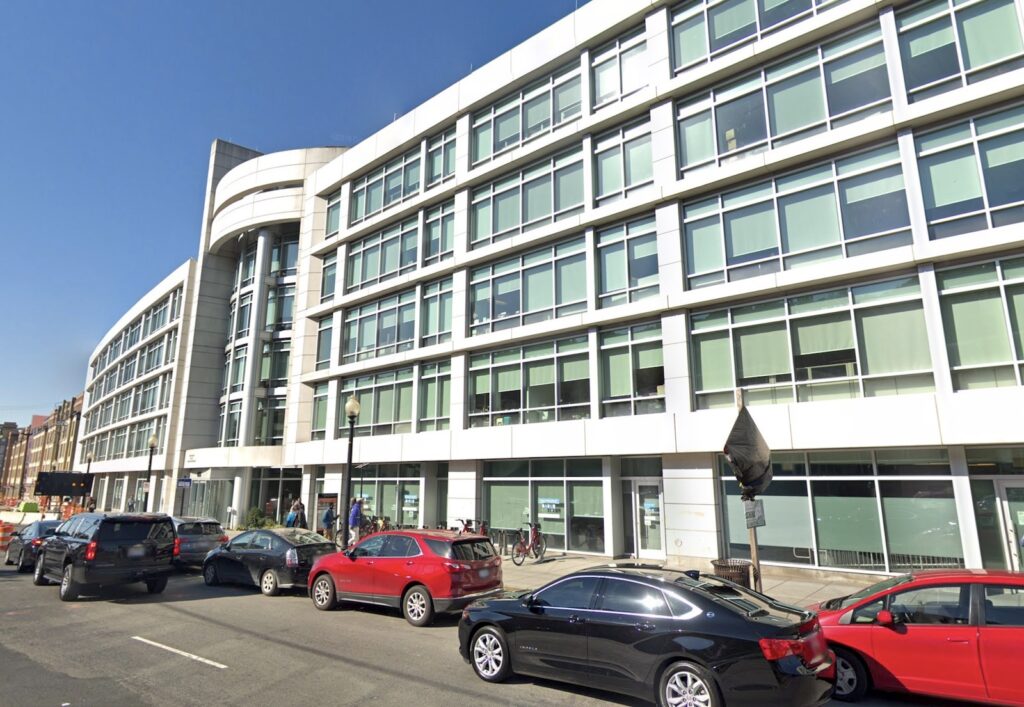Life in prison is always difficult. You are cut off from friends, family and general society — living in often intolerable conditions, feeling displaced and yearning for freedom.
Once you make it out and return to society, that is hard, too. It is difficult to get a job as an ex-offender and hard to find affordable housing on, at best, entry-level wages. Having a job keeps you out of prison and the vicious ghetto-prison cycle, according to experts. And you respect yourself.
“Nothing stops a bullet like a job,” Lawrence Taylor told a group assembled at Busboys & Poets on March 26. Taylor is an employment counselor for Jubilee Jobs, a D.C. nonprofit that helps low-income D.C.-area residents find affordable housing. That includes connecting returning citizens to employers.
Jubilee staff had strung 50 letters from inmates asking for help finding jobs across the front windows of a large private meeting room where the event took place. From a reporter’s observation, many of them read that those people were good and ready to come back from incarceration, work and become a success story.
Taylor told the crowd at the awareness and fundraising event that a job will keep ex-offenders from reverting back to dealing in and using drugs, or to stealing to obtain enough money to make ends meet for their families.
Counselors like Taylor urge Jubilee’s ex-offender clients to keep a job, if they get one, for at least six months. That way the employer gains trust that the person will be reliable for the job, and the employer also will be inclined to hire more ex-offenders from Jubilee when positions open in the future. Referrals help stabilize the organization’s partnerships.
Taylor hammered home the importance of employment for returnees. “You know you’ve uncovered something of your soul when you’ve been in the workplace,” he said. “It gets you a sense of who you are from being part of the workforce.”
He noted that people coming out of jail tend to be resigned to a lack of prospects to build their futures. If Jubilee can help them get a job, it is a huge plus.
Job counselor Sean Hicks reminded the crowd that because D.C. does not have a prison, Jubilee gets letters from inmates all over the country, including California and Alaska. Those arrested here go to prisons in other states. They face the same problems if they are coming back to the D.C. area as they would returning to any major urban area in the country: scarcity of affordable housing and trouble getting even entry-level work. In the District, that work tends to be clustered in the city’s poorest wards, 7 and 8, Hicks emphasized.
He noted most of these people are in for misdemeanors, most often minor drug possession.
Deone Brown, a Jubilee Jobs alumni in attendance, came to the organization after being released from Baltimore Penitentiary in the early 2000s. In an interview, Brown said he was convicted of heroin sales and possession. Addicted as a teen, Brown had committed crimes in the street to support his habit. His is now 59.
With help from Community Action Group in Northeast and Second Genesis in Northwest, he has been off the drug for 18 years.
Brown spoke proudly of his daughter’s success in college. He has supported her as a single parent and she recently made the dean’s list at Fairmont State University in West Virginia with a 3.4 grade point average
He spoke lovingly of her influence on his life. “She has kept me on the right path with the Lord because I knew she was all I had; she depended on me,” Brown said. “I thank God and Jubilee Jobs for giving me an opportunity to stay on the right path and enable the people reading this story to stay on the right path.”
Brown lives by himself in an apartment in Southeast and has been working successfully at a Target in Prince George’s County for about a year. Getting the job was “a big relief.” Now he has a pro bono lawyer working to expunge his record. Some of the charges go back 30 years. And after 11 years of dialysis, he has been able to get a needed kidney transplant.
“[Jubilee Jobs] is a beautiful program that gives you strength and hope that you can turn your life around and stay positive at all times,” Brown said.
Hicks went on to tell the audience that returning prisoners’ transition to life outside can last up to two years. Most need more money than they have and many struggle with mental health issues.
A lot of the mental health problems are caused in prison because it is loud in the penitentiary, to the point of pain, according to Hicks. So, Jubilee and other resettlement assistance programs try to give returnees “wraparound” services — psychiatrists, social workers and others — to counsel them, listen to them, and figure out what their issues are and the best way to help. It takes time and money.
Hicks reminded the crowd that Jubilee can only help these people when they get out; not while they are still “inside.” It has to be realized they were probably in an often-dangerous situation, and may not be responsive at first to outside offers of help.
“It’s hard to get deep with someone without putting them in danger,” Hicks said. “We take pride in building a diverse community” of people returning from imprisonment.
Terry Flood, Jubilee’s executive director, said in a separate interview that the returning prisoners they have helped have been more reliable workers for employers who will take a chance than the ordinary low-income people with no prison time.
“It’s also very hard to move from entry-level [jobs] to a higher-paying job at, for example, $20 an hour, when you’re an ex-prisoner. Many don’t want to go back to school, and employers don’t promote much from within,” Flood said. People usually “piece it together,” meaning they work until they get of the age to receive Social Security.
There is also a D.C. nonprofit called Manna that can help ex-offenders buy houses, she noted.
Flood said Jubilee gets on average 20 or 25 letters a month from prisoners all over the country. But only 40 percent of their clients have prison records. The organization started in 1973 to help low-income people find housing. Need began to build from returning prisoners in the 1980s and 90s when mass incarceration began after the Civil Rights movement.
So Jubliee branched out to meet the demand. “[Prison] is an awful, destructive experience,” Flood said.
One of the organization’s job counselors had been imprisoned in Lorton Reformatory — formerly operated by the District and shuttered in 2001 — before returning to the city and working with Jublilee. He was well-connected to inmates who knew they would need help finding employment when they got out, and he brought in many new clients.
Flood stressed that the organization’s philosophy is pretty basic. “We decided to treat anybody with a prison record like anyone else,” she said. They have found, she noted proudly, that the people with criminal records that they have placed in jobs have had better retention than those with no record.
D.C. law has, for several years, prevented employers from asking job applicants on applications whether they have a prison record.
“People want to rebuild their lives and are thrilled to have a job,” Flood said. “They are trying to reach financial sustainability, which they can achieve only with a community network.”








